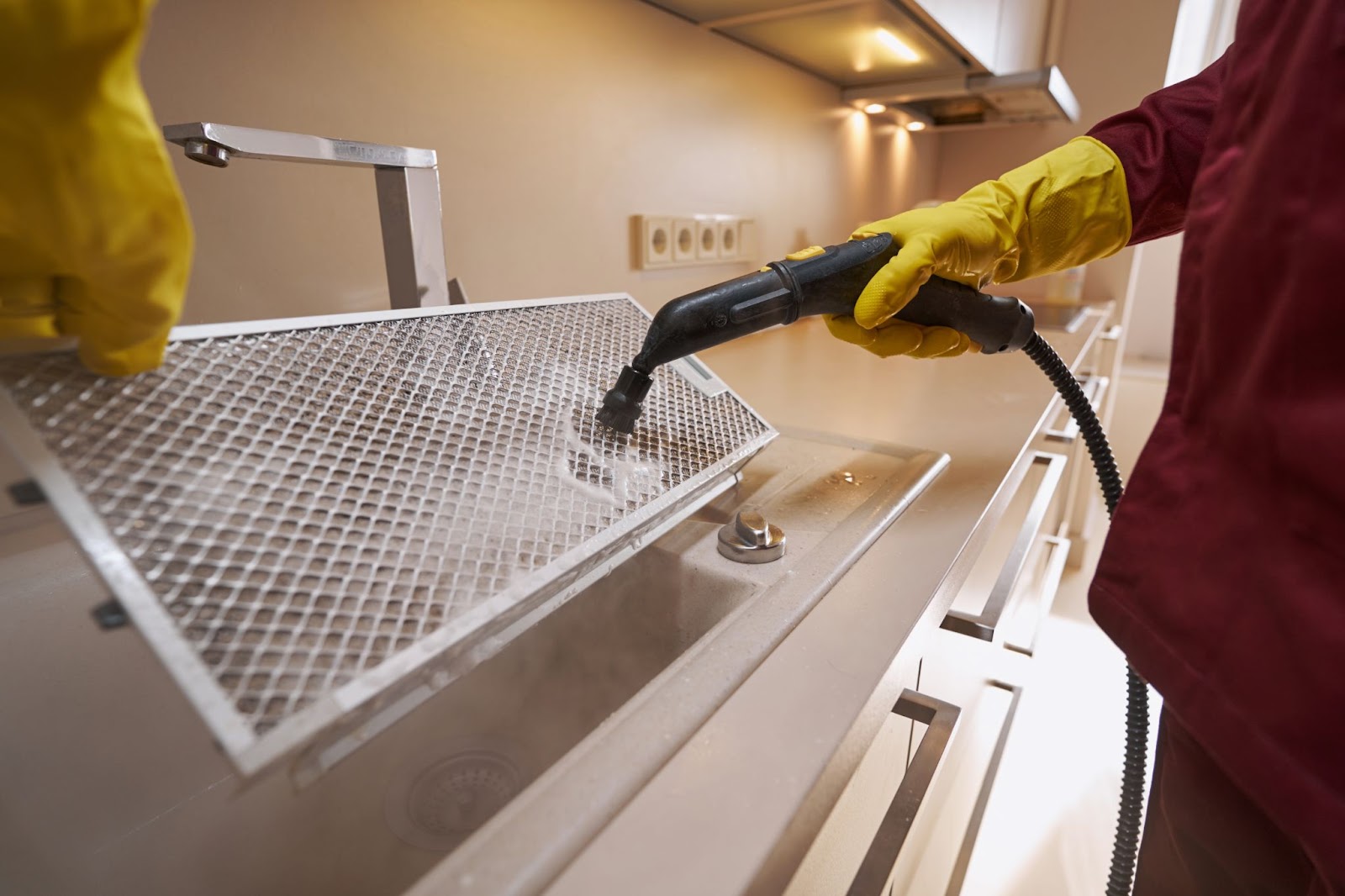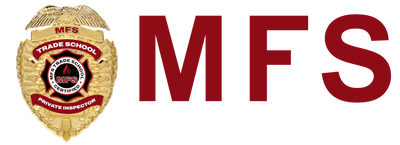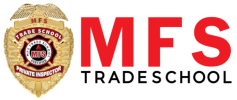DIY vs. Professional Hood Cleaning: Key Considerations

Maintaining a clean and safe kitchen environment is crucial for both home cooks and restaurant operators. The kitchen hood serves as a vital component in this endeavor, capturing grease, smoke, and odors generated during cooking processes.
Regular cleaning of the kitchen hood is essential to prevent grease buildup, reduce fire hazards, and ensure compliance with health and safety regulations. Restaurant owners and managers face a critical decision when it comes to keeping their kitchen hoods clean: should they tackle the task themselves or hire a professional cleaning service?
This article will explore the intricacies of kitchen hood cleaning, comparing the benefits and drawbacks of DIY cleaning versus professional services. By the end, readers will have a better understanding of which approach best suits their needs, ensuring that their kitchen remains a clean, safe, and efficient workspace.
What is Hood Cleaning?
Hood cleaning refers to the process of removing grease, grime, and other buildup from commercial kitchen exhaust systems. This thorough cleaning encompasses the entire exhaust system, including the hood filters, grease traps, ductwork, and exhaust fans.
The frequency of cleaning depends on factors such as the volume of cooking, type of cuisine, and local health and safety regulations. Generally, commercial kitchens should have their hoods cleaned professionally every 3-6 months, with more frequent cleanings for high-volume establishments.
Proper hood cleaning goes beyond simply wiping down visible surfaces; it requires specialized equipment and techniques to achieve a deep, comprehensive clean, as outlined in this essential guide to commercial kitchen maintenance. Professional hood cleaners, like those trained at MFS Trade School, use advanced tools and methods to remove stubborn grease deposits and ensure optimal system performance. For those interested in learning these techniques, hands-on training for kitchen exhaust hood cleaning is available.
Regular hood cleaning is critical for maintaining a safe and hygienic kitchen environment. It helps prevent fire hazards by eliminating flammable grease buildup, improves ventilation efficiency, and ensures compliance with health and safety regulations.
DIY Hood Cleaning: Pros and Cons
Pros
-
Cost Savings: DIY cleaning eliminates the expense of hiring professionals, making it an attractive option for budget-conscious restaurant owners.
-
Flexibility: Cleaning on your own schedule allows you to tailor the process to your kitchen's specific needs and workflow, minimizing disruptions.
-
Firsthand Knowledge: Engaging in the cleaning process provides a deeper understanding of your exhaust system, helping you identify potential maintenance issues early.
Cons
-
Limited Effectiveness: Without professional expertise and equipment, DIY cleaning may not thoroughly remove all grease and grime, particularly in hard-to-reach areas.
-
Time-Consuming: Effective cleaning requires significant time and effort, which can divert valuable resources from other critical kitchen duties.
-
Safety Risks: Handling cleaning chemicals and working in tight spaces pose potential hazards, such as chemical burns or slips and falls, without proper training and safety protocols.
Professional Hood Cleaning: Pros and Cons
Pros
-
Expertise and Thoroughness: Professional cleaners have the training, experience, and specialized equipment to efficiently clean all components of the exhaust system, ensuring a thorough job.
-
Regulatory Compliance: Hiring professionals helps ensure compliance with fire safety regulations and health codes, protecting your business from potential fines or closures.
-
Time and Resource Efficiency: Outsourcing the cleaning task allows your staff to focus on their core responsibilities, optimizing kitchen operations.
-
Extended System Lifespan: Regular professional maintenance helps prolong the life of your exhaust system, reducing the need for costly repairs or replacements.
Cons
-
Higher Upfront Costs: Professional cleaning services come with a price tag, which may strain tight budgets; however, the long-term benefits often justify the investment.
-
Scheduling Coordination: Aligning cleaning appointments with your kitchen's schedule may require some flexibility and advanced planning to minimize disruptions.
Factors to Consider When Choosing Between DIY and Professional Cleaning
-
Kitchen Exhaust System Complexity: Intricate or large-scale systems may require professional expertise to clean effectively, while simpler setups might be manageable with DIY efforts.
-
Grease Accumulation Level: Heavy grease buildup, common in high-volume kitchens, often necessitates professional intervention to ensure complete removal and maintain safety standards.
-
Available Resources: Consider your team's time, skills, and comfort level with DIY projects when deciding between in-house cleaning and outsourcing to professionals.
-
Budget and Long-Term Value: While professional services involve upfront costs, they often provide long-term value through enhanced safety, efficiency, and regulatory compliance.
-
Health and Safety Compliance: Prioritize adherence to local health and safety regulations, which may require professional cleaning at specified intervals to maintain compliance.
Ultimately, the choice between DIY and professional hood cleaning depends on your unique kitchen environment, resources, and priorities. By carefully weighing the pros and cons and considering the factors outlined above, you can make an informed decision that ensures a clean, safe, and efficient kitchen for years to come.
DIY Hood Cleaning: Pros and Cons
Pros
Opting for DIY hood cleaning can significantly reduce operational expenses by removing the need for external service fees. This approach can be particularly advantageous for small businesses aiming to maximize budget efficiency. The savings accrued can be redirected to other essential areas of the business.
Undertaking the cleaning process independently offers unmatched scheduling flexibility. Owners can perform cleaning activities at times that best suit their business operations, ensuring minimal disruption to service. This adaptability is crucial for maintaining a smooth workflow in busy environments.
Taking charge of the cleaning process allows owners to develop a deeper understanding of their kitchen's exhaust system. This intimate knowledge aids in early identification of potential issues, such as signs of wear or blockages. For those seeking to enhance their knowledge, an online kitchen exhaust hood cleaning course is a great option, as highlighted in this guide to kitchen maintenance.
Cons
The lack of professional-grade equipment and specialized knowledge might result in subpar cleaning, especially in areas that are difficult to access, as explained in this step-by-step guide to deep cleaning your kitchen. This can leave behind residual grease that poses a safety risk.
The endeavor demands significant time and physical effort, drawing attention away from other critical restaurant tasks. This allocation of resources may impact overall productivity and the ability to focus on customer service and culinary excellence.
Potential hazards associated with DIY cleaning should not be overlooked. Without proper training, there is an elevated risk of accidents, such as chemical exposure or physical injuries. Moreover, failing to comply with health and safety regulations can lead to penalties, underscoring the importance of thorough preparation and adherence to safety protocols.
Professional Hood Cleaning: Pros and Cons
Pros
Professional hood cleaning provides a comprehensive approach that ensures every aspect of the exhaust system is addressed. Technicians utilize industry-standard techniques and tools to deliver a deep clean, reaching areas that are often missed by less experienced hands. This meticulous service not only enhances ventilation but also mitigates risks associated with grease buildup, supported by commercial kitchen maintenance solutions.
Regulatory Compliance: Hiring professionals helps ensure compliance with fire safety regulations and health codes, protecting your business from potential fines or closures. For more details, visit our FAQs about kitchen exhaust hood cleaning certifications.
Consistent professional maintenance can significantly enhance the performance and durability of exhaust systems. This preventative care helps avert major issues by tackling minor ones early, ultimately reducing downtime and financial losses due to equipment failure. The attention to detail provided by experts ensures the system remains in peak condition for extended periods.
Cons
Despite these advantages, the initial investment in professional cleaning services is higher than that of self-managed methods. For businesses that need to maintain tight financial oversight, this expenditure requires careful consideration. However, the value derived from improved safety and compliance often offsets the initial cost over time.
Coordinating cleaning schedules with professional teams requires careful planning to avoid interference with daily operations. For tips, check out our guide on preparing your kitchen for professional hood cleaning. This entails working closely with service providers to select optimal times for cleaning, which may involve temporary adjustments in the restaurant's routine. Effective communication and scheduling can ensure minimal impact on business activities.
Factors to Consider When Choosing Between DIY and Professional Cleaning
Kitchen Exhaust System Complexity
Intricate or large-scale systems may require professional expertise to clean effectively, while simpler setups might be manageable with DIY efforts. For business owners, hands-on exhaust cleaning coaching for business owners is available to help navigate these challenges.
Frequency of Use and Grease Accumulation
The operational intensity of your kitchen dictates the frequency and method of cleaning required. Kitchens that operate continuously or specialize in greasy foods tend to accumulate residues rapidly, necessitating more rigorous cleaning protocols. Kitchens with lighter use might achieve satisfactory results through regular in-house maintenance, keeping grease levels in check, by following an ultimate kitchen cleaning checklist.
Available Resources and Skillset
Before deciding on a DIY approach, evaluate the skills and availability of your team. Successful DIY cleaning demands a certain level of technical competence, appropriate cleaning tools, and a commitment of time. Training staff to execute these tasks properly can mitigate some challenges, yet it's crucial to assess whether this allocation aligns with overall operational priorities. If internal resources are limited, engaging professional services may prove more practical.
Budget Considerations and Long-Term Value
Financial planning plays a crucial role in selecting a cleaning method. While DIY approaches reduce initial expenditures, the potential for incomplete cleaning or system issues can result in unforeseen costs. Conversely, professional cleaning requires an upfront financial commitment but often yields long-term benefits through improved system efficiency and reduced maintenance needs. Careful consideration of these financial impacts aids in choosing a sustainable option.
Compliance with Health and Safety Regulations
Meeting health and safety standards is a fundamental aspect of kitchen operations. Non-compliance can lead to significant consequences, including fines and reputational damage. Professional cleaning services ensure adherence to regulatory standards, providing peace of mind that all cleaning activities meet necessary requirements. For DIY efforts, maintaining up-to-date knowledge of regulations and implementing comprehensive training programs is essential to ensure compliance and protect your establishment's standing.
Navigating the complexities of kitchen hood cleaning requires careful consideration of your unique circumstances and priorities. By weighing the pros and cons of DIY and professional cleaning, and assessing factors such as system complexity, grease accumulation, available resources, budget, and regulatory compliance, you can make an informed decision that ensures the safety, efficiency, and longevity of your kitchen. If you're ready to take your cleaning skills to the next level and build a thriving business, we invite you to explore our training and certification courses designed to help you start or grow your cleaning enterprise.






